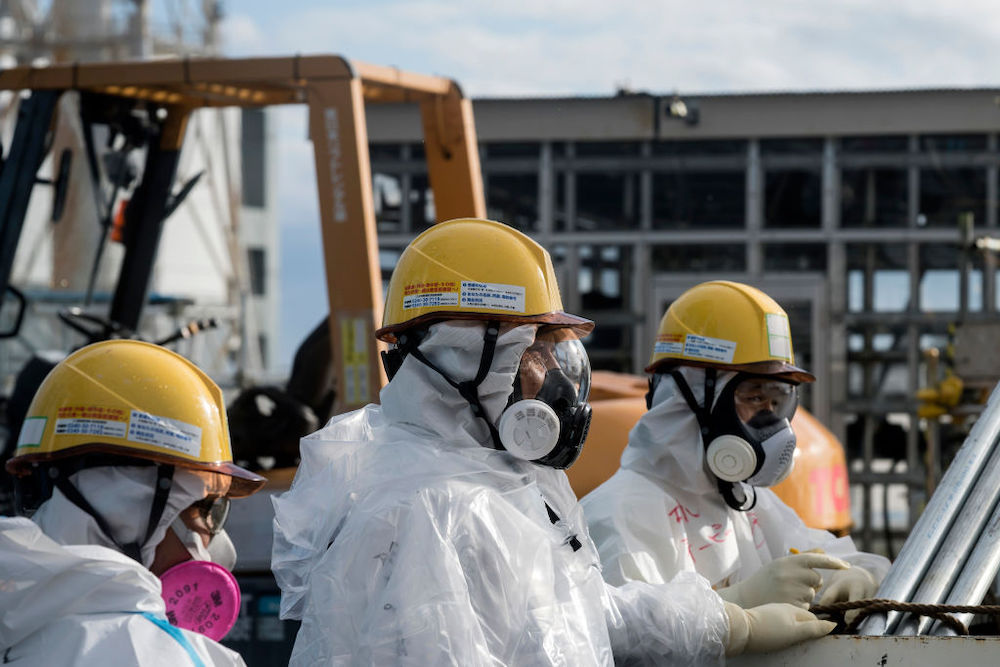- Nuclear power emerged as a controversial issue for attendees at a global clean energy summit held by the International Energy Agency.
- Environmentalists have long been split on the use of nuclear energy, which some view as unsustainable and dangerous.
- Projections by the United Nations’ Intergovernmental Panel on Climate Change say nuclear power may be key to a sustainable energy future with lower carbon emissions in line with the Paris Climate accord.
Nuclear power emerged as a radioactive topic for speakers at an International Energy Agency online global summit held Thursday dedicated to the clean energy transition.
Policymakers and industry leaders from nearly all corners of the globe, such as China’s Director of the National Energy Administration Minister Zhang Jianhua and U.S. Secretary of Energy Dan Brouillette, outlined their countries’ energy plans at the summit aimed at hashing out a roadmap for how the world transitions away from fossil fuels, linked to greenhouse gases and rising global temperatures.
In opening remarks, the United Nations Secretary-General Antonio Guterres urged countries to bet their billion-dollar COVID-19 recovery funds on a green future.
“We can invest in fossil fuels whose markets are volatile and whose emissions lead to lethal air pollution,” he said. “Or we can invest in renewable energy which is reliable, clean and economically smart.”
He acknowledged that some wealthy countries have used recovery funds to support struggling companies in the oil and gas sector. Guterres also called for no new external financing of coal in the developing world.
While energy ministers from several countries, including Japan and India, emphasized their transition away from fossil fuels and growing investments in renewable energy, nuclear power proved to be a divisive subject.
Leonore Gewessler, Austria’s minister for climate protection, environment and energy pushed back on an IEA report suggesting that governments view nuclear energy as one of several zero-carbon emission energy technologies that could help the world reach the emissions targets set out in the 2015 Paris Climate Accord.
Gewessler praised the agency’s suggestions for countries to invest in electricity grids and scrap fossil fuel subsidies, but slammed nuclear power.
“Let me raise one concern from my Austrian perspective, the recommendation regarding a nuclear renaissance through small nuclear reactors, it is something which raises strong concerns for us, strong sustainability and safety concerns,” Gewessler said.
Environmentalists have long been split on the use of nuclear energy, which many view as unsustainable due to the difficulties around finding safe storage facilities for nuclear waste products generated by reactors. The technology is also viewed as dangerous by its critics because of several historical incidents, such as the 2011 natural disaster in Japan that led to a meltdown of the Fukushima Daiichi nuclear power plant.
Still, voices from the nuclear industry tried to make their case. Jean-Bernard Lévy, the chief executive officer of the French nuclear energy giant EDF, said projections by the Intergovernmental Panel on Climate Change, a UN body tasked with providing data on the climate, have shown that in the absence of other viable technologies nuclear power may be key to a sustainable energy future.
Electricity demand may double in Europe by 2050 if the continent continues to decarbonise and replace fossil fuels with renewable-derived electricity, Lévy said.
“In reality, our only option is to leverage the … energy efficiency of renewable sources and nuclear power,“ he said.
Photo by Tomohiro Ohsumi/Getty Images






















